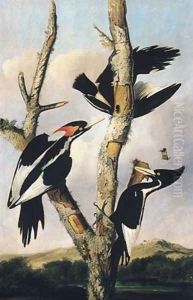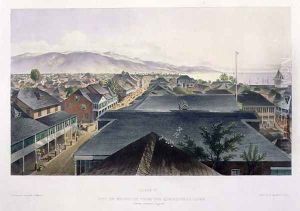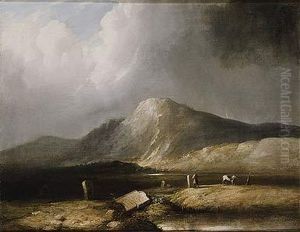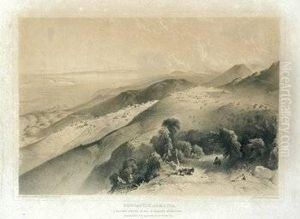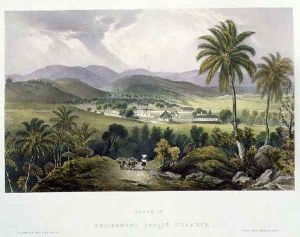Joseph Bartholomew Kidd Paintings
Joseph Bartholomew Kidd was a British landscape painter born in 1808. He was known for his picturesque Scottish landscapes and his ability to capture the serene beauty of the Scottish Highlands. His work was part of the Romantic movement, which emphasized emotion and individualism as well as glorification of the past and nature.
Kidd's journey into the world of art began with his fascination with the natural beauty of his homeland. He was particularly drawn to the rugged landscapes of Scotland, which would become the central theme of his artistic career. Throughout his life, Kidd traveled extensively across Scotland, sketching and painting the landscapes that captured his imagination. His paintings often featured dramatic skies, tranquil lochs, and the majestic mountains of the Highlands, rendered with a keen attention to detail and a profound appreciation for the natural world.
In the mid-19th century, Kidd's work gained recognition, and he became a celebrated figure in the Scottish art scene. His paintings were exhibited in prestigious galleries, including the Royal Scottish Academy, where he received considerable acclaim. Despite his success, Kidd remained dedicated to his craft, continually exploring new landscapes and refining his technique.
Joseph Bartholomew Kidd's contributions to landscape painting left a lasting impact on the art world. His works are celebrated for their romantic portrayal of Scotland's natural beauty, capturing the essence of the landscapes he so admired. Kidd's legacy lives on through his paintings, which continue to be admired for their artistic merit and as historical documents of Scotland's picturesque landscapes.
Kidd passed away in 1889, leaving behind a rich body of work that continues to inspire artists and art lovers alike. His dedication to capturing the natural beauty of Scotland has cemented his place as a significant figure in the history of British landscape painting.
